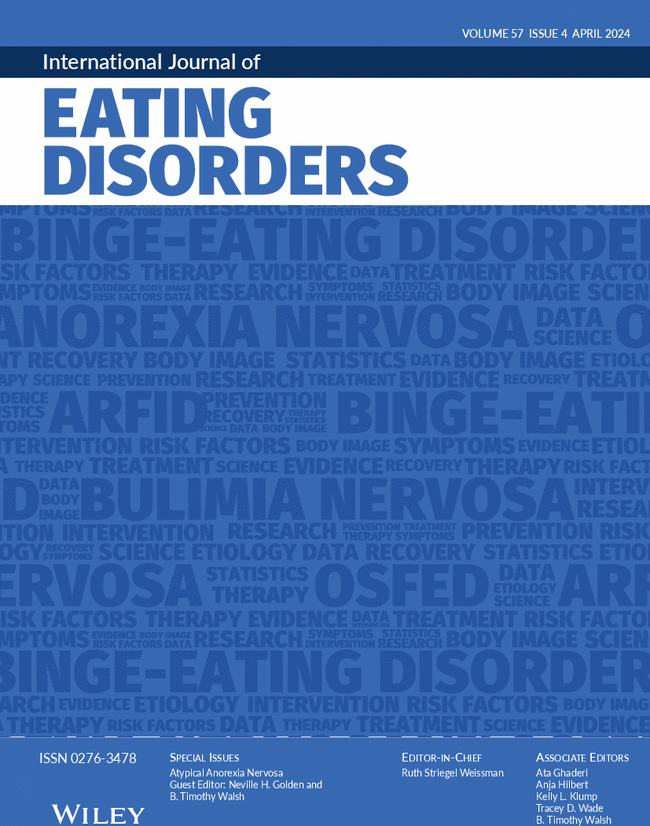Understanding Early Treatment Response in Brief CBT for Nonunderweight Eating Disorders: A Mixed Methods Study
Abstract
Objective
Early change in eating disorder psychopathology is the most robust predictor of treatment outcomes in eating disorders. However, little is known about what predicts early change. Using mixed-methodology, this study explored predictors of early change in the first four sessions of 10-session cognitive behavioral therapy (CBT-T) for nonunderweight eating disorders.
Method
Phase 1: interviews were conducted to explore CBT-T clinicians' perspectives on predictors of early change. Phase 2: robust multiple regressions were undertaken to examine whether any of five variables identified during interviews—diagnosis, wait time, therapeutic alliance, depression, and anxiety—were associated with early change in eating disorder psychopathology. Data were derived from outcome measures for service users (n = 107) receiving CBT-T in a community eating disorder service.
Results
Phase 1: eight themes were identified: attitudes to making change, diagnosis, external mitigating circumstances, therapeutic alliance, therapist confidence, pretreatment variables, CBT-T format, and therapeutic suitability. Phase 2: no significant associations were found between the five predictor variables (diagnosis type, wait time, baseline depression, baseline anxiety, and therapeutic alliance) and early change in EDE-Q scores. These results have been certified as computationally reproducible by an independent statistician.
Discussion
Qualitative findings identified several potential predictors of early change in eating disorder psychopathology in CBT-T, however, quantitative data contradicted qualitative findings, finding no significant association for any of the tested variables. Further research is required to clarify theses conflicting findings and to quantitatively explore the additional predictors highlighted during qualitative analysis.


 求助内容:
求助内容: 应助结果提醒方式:
应助结果提醒方式:


